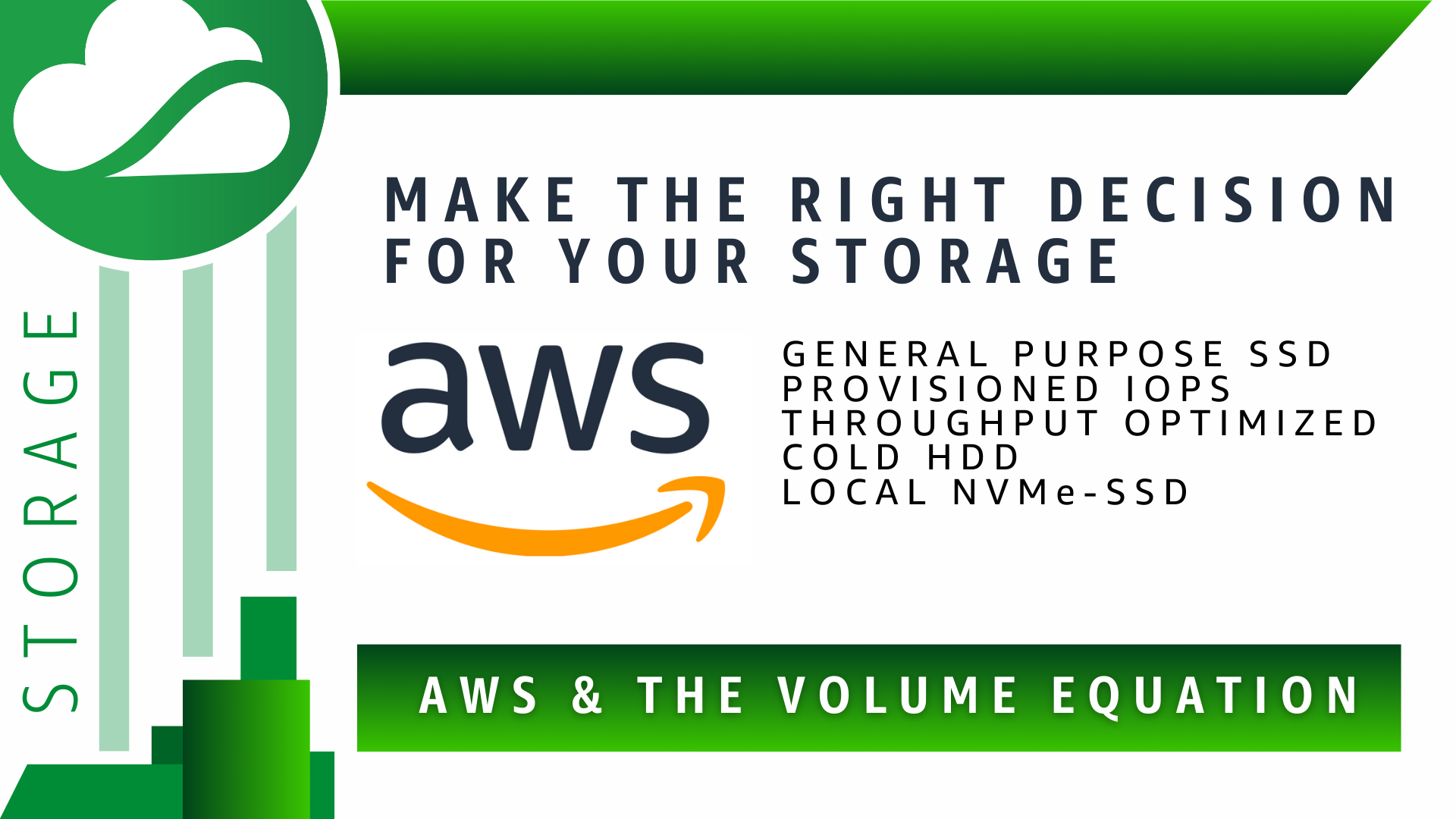
AWS and the volume equation
Despite being one of the the worldwide most used block storage solution, Amazon's General Purpose SSD is far away from being a general and versatile solution. Unlike other providers selling volumes based on device type and an hourly price per gigabytes, AWS made the choice to create products adapted to usages.
EBS : The Block Storage solutions
Behind the name of Elastic Block Store, 5 storage classes are available:
- Magnetic: Historical Block Storage solution provided by AWS. As its name indicates, this product is powered-up by spinning disk making it inherently slow: 200 IOPS and 100 MB/s. But in the end of 2000s, it wasn't a low-cost but a general purpose.
- Throughput Optimized: Dedicated to large chunk processing, this product aims an optimal throughput. Still with HDD but efficient for Big Data or log processing.
- Cold HDD: In the same branch than Throughput Optimized but with lower price and performance. Useful for data with less frequently accessed volume like cached data storage.
- General Purpose SSD: This is the common volume type used by consumers and shouldn't be taken as a standard SSD Block Storage. Firstly GP-SSD, is capped at 16KIOPS which is pretty low for an intensive workload. Secondly, its maximum performance are constrained by a credit system not letting you benefits permanently from the best performance. These both arguments make GP-SSD more appropriate for non-intensive workloads that do not require permanent charge.
- Provisioned IOPS SSD: It's an answer to the changing performance of General Purpose. This product allows user to define and pay for an amount of maximum IOPS going up to 64KIOPS. It makes possible storage-bound workloads but at a high price of $0.065 per provisioned IOPS.
Local storage
Block Storage isn't the only one solution provided by Amazon Web Services, since I3 series, local NVMe-SSD are available for High-IOPS workloads. Let's compare similar solutions on paper: i3.large vs r5.large + 500GB GP SSD.
| Flavor | CPU | RAM | Storage | Monthly price |
|---|---|---|---|---|
| i3.large | 2 | 16 | 475GB local NVMe-SSD | $135 |
| r5.large | 2 | 16 | General Purpose SSD | $168.4 |
As you can see on table and chart below, for an equivalent solution in term of basic specifications, it's much more worth opt in for the i3. Also, the NVMe devices are attached locally to I3 VMs without block storage creating a real gap in terms of IOPS and latency:
Features matter a lot
To do the a comparison of Block versus Local storage is inappropriate without taking in account features. In fact, despite its general lower performance Block Storage is a key component of Clouds' flexibility and reliability. Where a Local device may focus on latency, Block is attractive by all its features such as snapshot/backups, replication, availability and more. Here a small comparative table outlining general pro and cons:
| Block | Local | |
|---|---|---|
| Latency | Low to high | Very low |
| IOPS | Low to high | High to very high |
| Replication | Yes | - |
| SLA | Yes | - |
| Price | Low to very high | Included with instance |
| Size | Up to +16TB | Fixed at instance startup |
| Persistence | Unlimited | Instance lifespan |
| Hot-plug | Yes | No |
We see that there are clearly 2 usages: A non-guaranteed high performance and a flexible one.